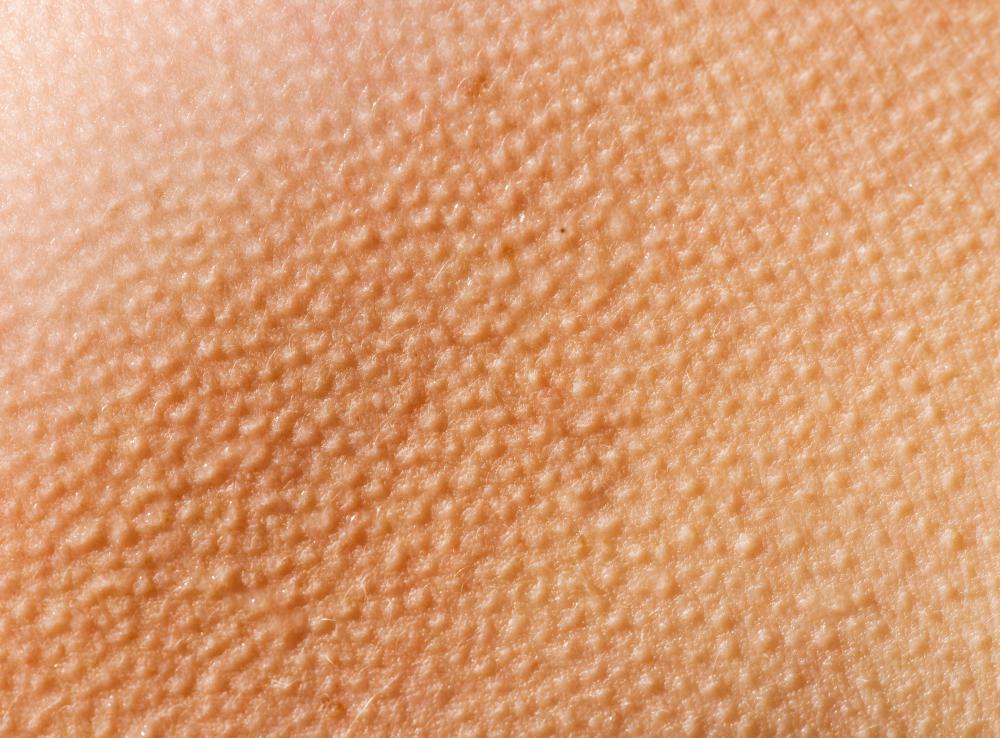At WiseGEEK, we're committed to delivering accurate, trustworthy information. Our expert-authored content is rigorously fact-checked and sourced from credible authorities. Discover how we uphold the highest standards in providing you with reliable knowledge.
What is Vicodin® Withdrawal?
Vicodin®, or hydrocodone, is a common narcotic pain reliever that generally is available only by prescription. In prescription form it is usually combined with acetaminophen. Many take hydrocodone to treat pain of various sorts, but prescriptions are usually given for short-term use because hydrocodone is addictive. Moreover, after a while people build a tolerance to the medication and need to take more of it for it to remain effective.
It is possible for people using Vicodin® regularly to become addicted and suffer withdrawal when they stop taking the medication. Vicodin® withdrawal is the body’s response when people stop taking the medication if they are addicted to it. It usually lasts three to four days and may include the following symptoms:
- Sleeplessness
- Anxiety
- Nausea and/or Diarrhea
- Muscle Twitching
- Goosebumps
- Increased Perspiration
- Runny nose or nasal congestion
- Flulike symptoms

In addition to the above symptoms from Vicodin® withdrawal, people withdrawing quickly may have an increase in pain levels from injuries that caused use of the drug. These may be truly physical or psychosomatic, but either way they are hard to bear. People severely addicted may act irrationally, and it isn’t their choice to stop taking Vicodin® they may act in ways that are unsafe in order to obtain more medication.

Emotional withdrawal from hydrocodone is just as significant and people may initially feel devastated and empty without the drug. Like many other addictions, hydrocodone addiction is both physical and emotional. When people stop taking Vicodin®, they need to deal with the emotional side of addiction too, and this is usually accomplished through treatment at drug treatment centers, participation in support groups, or through individual counseling.

When people choose to stop taking hydrocodone, they should be aware that Vicodin® withdrawal is not usually life-threatening. It is possible to bear withdrawal from the safety of home. Yet for long-term users, it may be necessary to undergo detox in a drug treatment facility. Some people may prefer this because being in the facility helps protect them from seeking more hydrocodone to take, and because drug treatment centers help to address the emotional aspects of Vicodin® withdrawal and addiction.

Hydrocodone by nature creates dependency, and not all people who take it are considered addicts, even if they are dependent on the drug for pain relief. However, those who use the drug over a period exceeding two weeks to two months may expect some Vicodin® withdrawal symptoms when ending use. As long as the person has used the drug in a recommended manner, doctors may simply help the patient taper off usage, which generally results in fewer symptoms of withdrawal.
However, addicts who have overused hydrocodone may not be able to benefit from this tapering process, and doctors must get usage down to safe usage guidelines. One of the big problems with hydrocodone abuse is that the medication is usually combined with acetaminophen. This means that taking more of the recommended dose can significantly increase risk of liver damage. When people severely abuse Vicodin® the tapering method may not be a viable because initial levels that would be needed are still well over recommended dosages, and most people may need to stop cold turkey.
AS FEATURED ON:
AS FEATURED ON:














Discussion Comments
I didn't have very serious opiate withdrawal symptoms when my doctor took me off of Vicodin. I just had pain.
The pain that Vicodin had magically gotten rid of seemed to come back with full force when I quit Vicodin. But I got through it. I took some mild pain relievers when the pain was at its worst. It also helped to drink a lot of water and I took walks in nature. I ate lots of of fruits and veggies with antioxidants, and food with chili peppers because chili is a natural pain killer.
@fBoyle-- Yes, opiates are very addictive and withdrawal symptoms can be severe. The higher the dose and the longer the treatment, the worse withdrawal usually is.
I had similar issues during my withdrawal, but I also had nausea and weight loss. I also experienced odd swings. I would be hot and sweaty one minute and freezing cold the next. Withdrawal took more than two weeks for me, despite the fact that I reduced my dose slowly. It was hell for a while but I was basically back to normal at week three. So hang in there, it's going to get better.
I'm going through Vicodin withdrawal right now and it's awful. I'm experiencing anxiety, depression and insomnia and they all developed suddenly after I took my last Vicodin dose. I had no idea that opiate withdrawal symptoms are so severe.
Post your comments